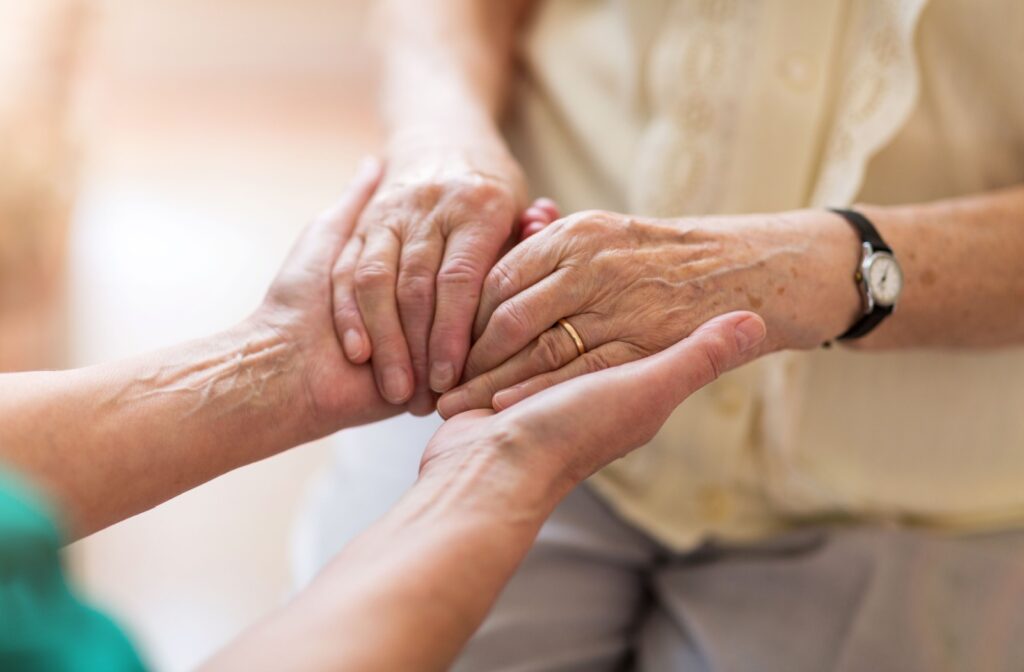The key to staying connected is learning to adapt your communication with patience, empathy, and understanding […]
How Alzheimer’s Affects Communication



The key to staying connected is learning to adapt your communication with patience, empathy, and understanding […]

Your involvement in memory care is a source of comfort, connection, and continuity that significantly contributes to their happiness and overall well-being. […]

Key Takeaways Appetite loss in individuals with dementia is a common challenge caused by changes in the brain that affect hunger signals, taste, and mealtime abilities. Recognizing the signs of appetite changes early is crucial to addressing nutritional needs effectively. With understanding and proactive steps, you can support your loved one in maintaining proper nutrition […]

This phrase is a common expression of confusion, fear, or longing for comfort. So, it’s important to respond with empathy and understanding. Responding with patience can help soothe your loved one and address the real emotion they are trying to communicate, even if they can no longer find the right words.
[…]

To prepare your family for a loved one’s move to memory care, it helps to prioritize open communication. This helps your family work together to manage emotions, support one another, and create a proper plan for your loved one. […]

Helping someone with memory loss starts with empathy, consistency, and the right environment. You’ll need to assess a range of factors to understand their needs so you can help keep them safe, supported, and engaged.
But you’re not alone. With the help of a memory care community, you can ease the challenges facing your loved one and help them preserve their quality of life.
[…]

Reading has long been valued for its ability to provide knowledge and entertainment, but it also plays a significant role in supporting cognitive health in people with dementia. Memory care communities and healthcare professionals are increasingly recognizing reading as both a therapeutic activity and a means of maintaining human connection. Reading stimulates the brain, engages […]

7 signs an older loved one needs personal care include:
Increased forgetfulness
Challenges with personal care
Social withdrawal or isolation
Confusion about time and place
Concerns about safety
Difficulties with communication
Caregiver fatigue and stress
[…]

Memory games like Sudoku, trivia, or card matching provide a fun, social pastime and support cognitive health by encouraging brain stimulation.
[…]

Assisted living can be extremely rewarding. It’s a way to help a loved one maintain their independence, happiness, and quality of life. However, there may be a point where your loved one needs to transition out of assisted living and into a more involved lifestyle. So, how can you tell when assisted living is not […]